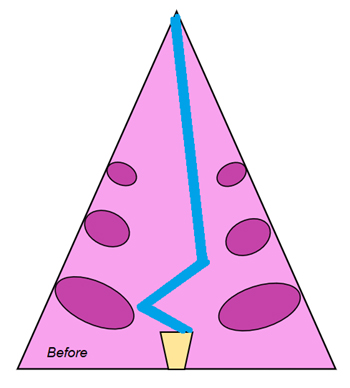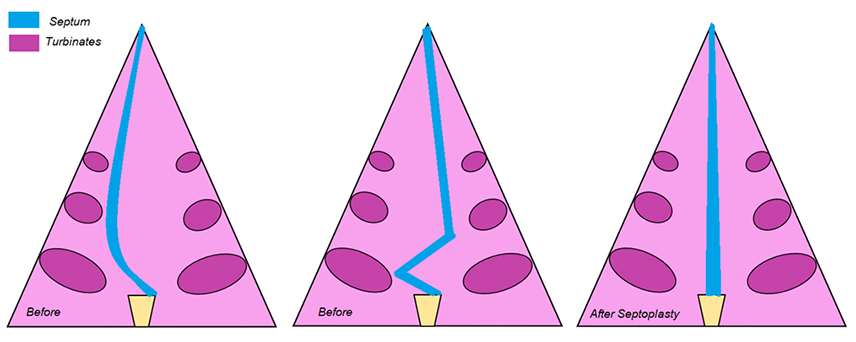
What is nasal septum?
Structure which divide the nose to right and left, consist of cartilage and bone, it can be crooked result in nasal obstruction with difficult breathing
What is septoplasty?
Non cosmetic surgical procedure, where the surgeon correct the septum deviation for improve breathing function

How septoplasty is done?
done under general anaesthesia through the nose, without any visible external incision, doctor will remove the deviated part and straighten the septum and it will take 1-11/2 hours.
Why do I need to do septoplasty?
Your doctor will discuss with you the decision for septoplasty and may offer the procedure in case of deviation in nasal septum causing nasal obstruction, recurrent sinus infection or deviation with recurrent nasal bleeding
it can be done alone or as a part of other surgery such as septorhinoplasty or functional sinus surgery
What to expect after your surgery?
Diet Resume normal diet as tolerated
Activity rest at home for two weeks, Light activities may be resumed after 7 days and when you feel up to it. Strenuous physical activity is discouraged for 2 weeks
Pain mild to moderate will control be painkiller (paracetamol or ibuprofen)
You may have packs in your nose to be removed after 24-48 hours by your doctor

You may have silastic sheet (plastic sheets) inside the nose will removed by doctor first visit after 7-10 days

You may feel nasal blockage and reduce in smell sensation in first few days
You may notice blood stained secretions in the first few days
Written card with your appointment will be given before you go home
At Home:
Medication: Antibiotics for 5-7days, pain killer regular for 48hours then as need, used normal saline to clean the nose 24hrs after operation
Activity: Sleep in 45 degrees in first 48 hours, avoid heavy exercise Avoid direct trauma to nose, Avoid Sajood in pray until for first 7 days
Avoid water to go inside the nose
Avoid blowing your nose
Avoid any allergen and strong smells (that may cause you to sneeze)
Avoid hot steamy water during shower
You can drive normally unless you feel dizzy and unsteady
** when to come to emergency: (Hamad general hospital)
- Large epistaxis (nasal bleeding), not responding to first aid (pinching of the nose for 5min, with head bend forward)
- Change in vision (inability to see clearly, or change in colour vision)
- Direct trauma to nose
For any questions you can call ENT WARD
Video:
